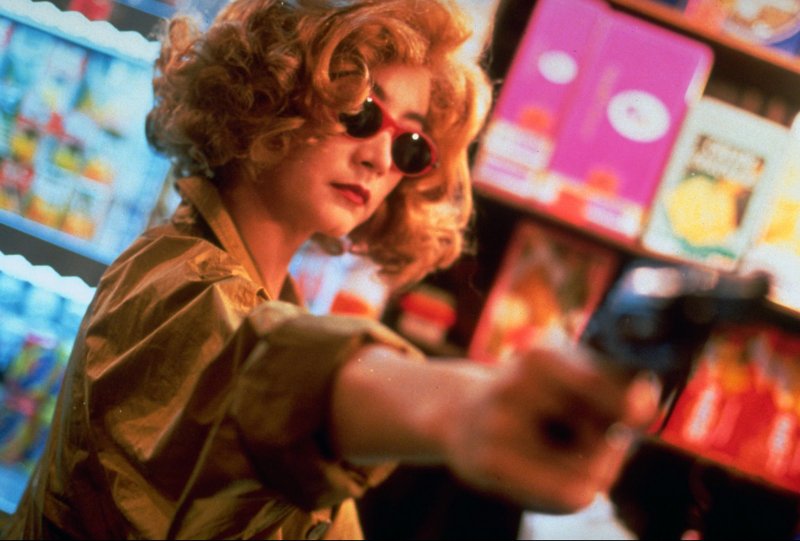Maybe it’s the waning days of August, the threat of September and back-to-school ads already playing on the television, the clash of the air conditioning in the Starbucks with the swelter collapse of patrons strewn over the burning café tables outside, or The Mamas & The Papas festival playing over the speakers, but this August day is made for the melancholy and thrilling sweet / bitter play of Wong Kar Wai’s Chungking Express.
It’s a perfect / imperfect film, something Wong Kar Wai created to escape the drawn out madness of editing his swordmaster epic Ashes of Time. Intriguing, how one artistic expression might be the antidote to another. Made over three months from beginning to end, an impossibly small amount of time in the world of feature filmmaking, it drips with the adrenaline and relief of this condensed creative period, yet, contradictorily almost drowns in its twin stories of already unrequited cop lover boys who accidentally fall for new women (who will, of course, leave them too).
Chungking Express defies standard film narrative, telling two stories, one after the other, about Hong Kong cops in love and neither tale seems satisfied with its cop protagonist, lurching in perspective to also explore the two women they eventually pursue and their California dreams of survival (the incredible Brigitte Lin) and departure (impish Faye Wong).
The first tale is a cop thriller, the second a screwball comedy, but the stories ignore these easy categories: the thriller is focused on a quirky romantic male lead (Takeshi Kaneshiro) and the screwball comedy’s male lead (Tony Leung) is saturated in a sea of unrequited desires, perfectly expressed in the almost relentless repetition of The Mamas & The Papas “California Dreaming.” All these departures from form and genre expectations might make some viewers long for standard structure, but longing is really the point.
Specificity is what grounds this film, these two stories, and prevents the film from being buried in the genres and pop songs that crash and clash together here. The first cop believes if he runs and sweats enough he will cry less. A toy plane stands in for the unobtainable aspect of cop number two’s stewardess girlfriend who is departing, arriving, and never really there. The details defy the generic throughout.
This small clip illustrates how “California Dreaming” works in the second half of the film and, too, shows how the unrequited structure of a love triangle can come down to something as specific and mundane as a Chef Salad.
For more on Wong Kar Wai, see this essay on longing in his works and this introduction to a commercial short film he made.
— RWGray



